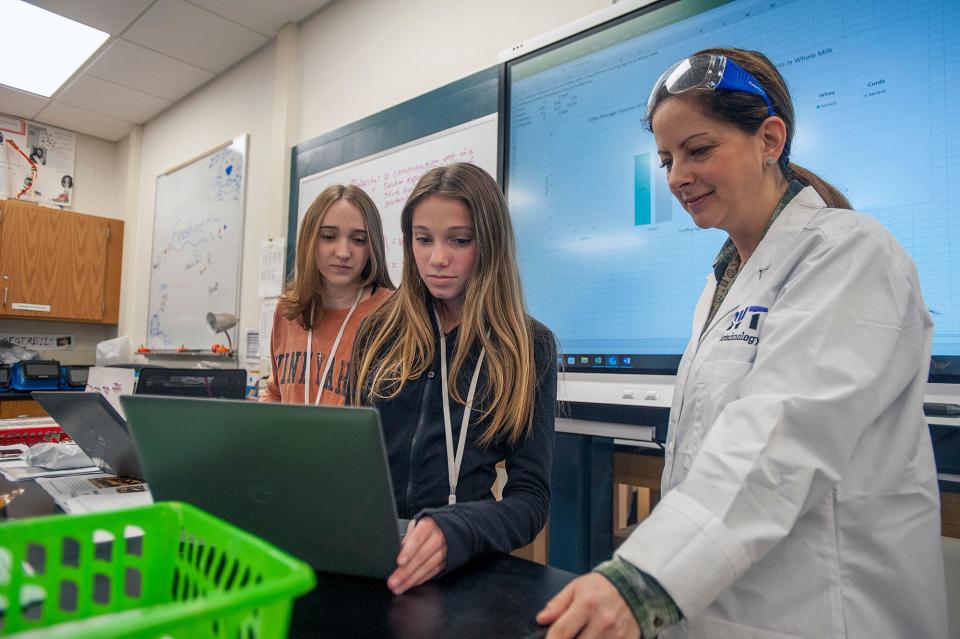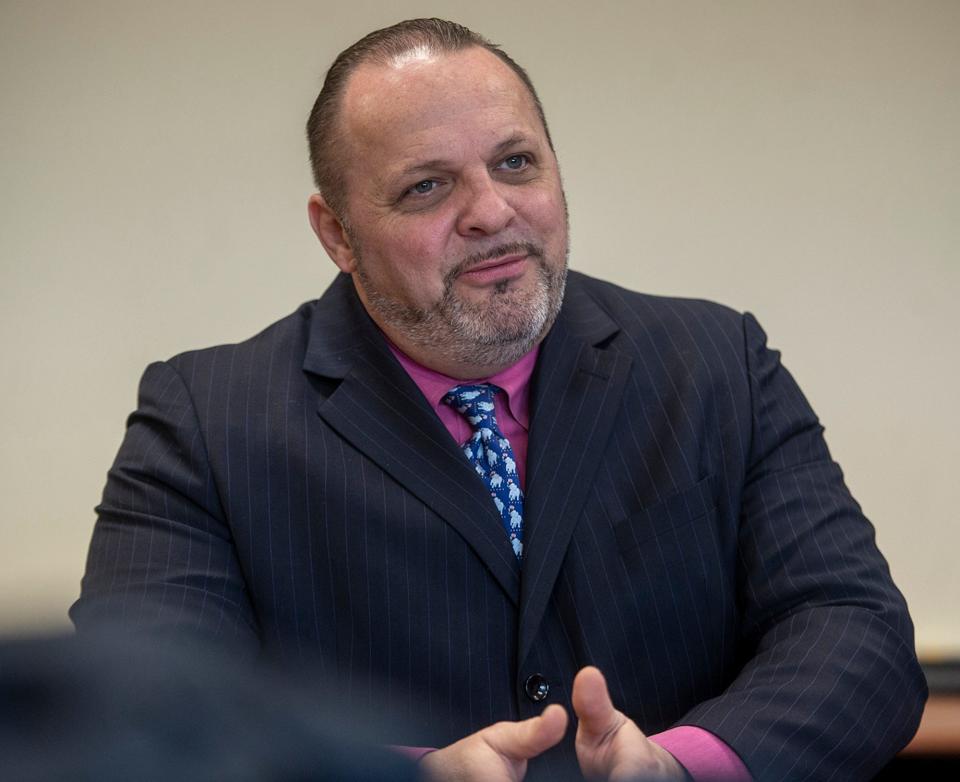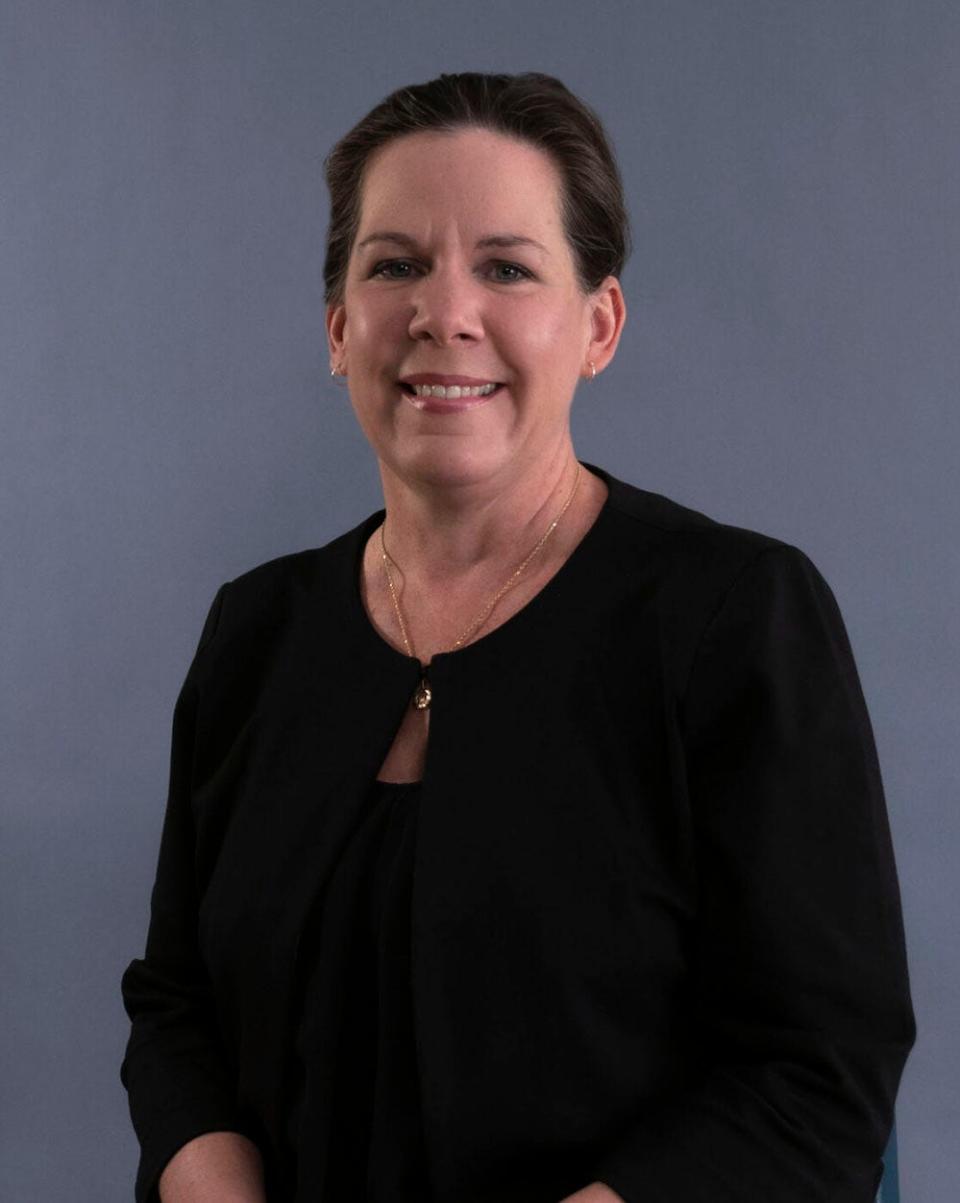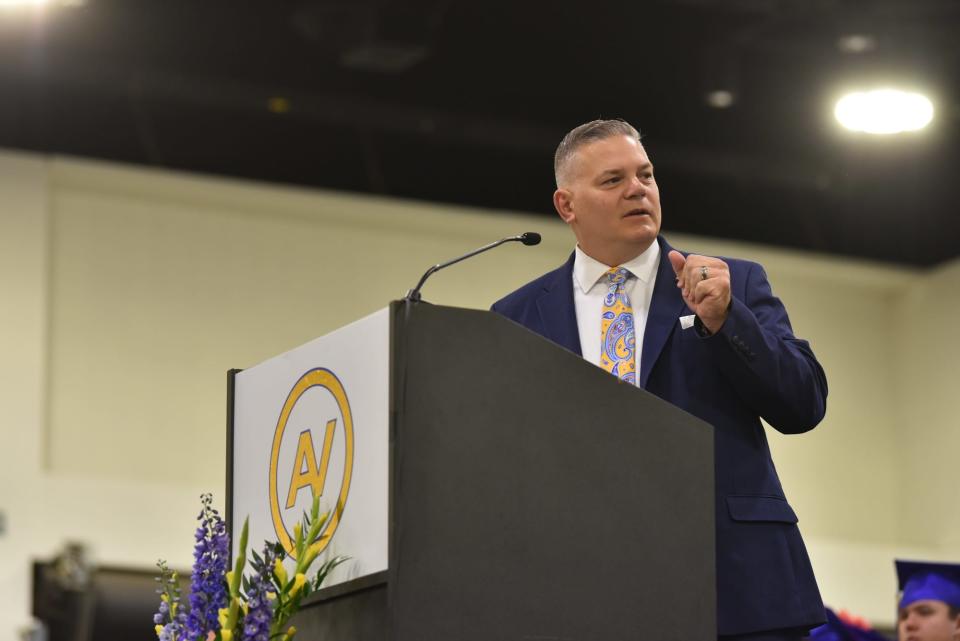Why Vocational school leaders reject pushes for diversity lottery in admissions
- Oops!Something went wrong.Please try again later.
Local technical and vocational school administrators are pushing back against accusations that their admissions policies are discriminatory, and that they should instead be made lottery-based.
Last month, the Gateway Cities Legislative Caucus, a 26-member group of legislators co-chaired by state Sen. John Cronin, D-Fitchburg, and state Rep. Antonio Cabral, D-New Bedford, wrote a letter to Gov. Maura Healey and Lt. Gov. Kim Driscoll asking that the administration "direct the Board of Elementary and Secondary Education (BESE) to prohibit selective criteria that discriminates against disadvantaged 8th graders and inhibits their social and economic mobility."
The letter goes on to ask the Healey administration to "mandate lottery admissions at vocational schools." It came several months after the Vocational Education Justice Coalition, a group comprised of community and civil rights advocates, filed a complaint along similar lines with the U.S. Department of Education, according to WBUR.

'I can still make a difference': Michael Fitzpatrick, 76, has been Blackstone Valley Tech's leader since 1994
But school administrators say a lottery-based admissions system would take seats away from students who benefit most from vocational education.
Blackstone Valley Tech says it has already made progress in diversity
Administrators at Blackstone Valley Regional Vocational Technical High School in Upton said a lottery system would cause a regression of progress that Blackstone has already made. They said a lottery system would also eliminate their interview process of admissions, which they say is an integral part of admission to the school.
Superintendent-Director Michael Fitzpatrick said that after hearing calls to diversify the school's population, administrators listened and made changes.
"We have always felt that we should mirror the population of the district of the (eighth-grade) graduates," he told the Daily News.

Blackstone Valley Tech Principal Anthony Steele added that "mirroring the population" applies to all types of students, including those with special needs, English Language Learners and those who are economically disadvantaged or come from low-income families.
Blackstone Valley Tech, which uses a merit-based, "candidate-earned" admissions process, claims to have seen an increase in students these populations, as well as students of color.
Tri-County superintendent questions data used by lottery supporters
Karen Maguire, superintendent-director of Tri-County Regional Technical Vocational High School in Franklin, also does not support lottery-based admissions. Tri-County asks eighth grade students to complete an application, get a letter of recommendation and sit down for an interview to ascertain whether technical or vocational education is right for them.
"I think that right now it doesn't solve any of the problems," Maguire told the Daily News. "The data that the folks who are supporting a blind lottery... I'm not convinced that it's accurate."

'Systems are failing': Voters in 11 Tri-County communities approve new school construction
She pointed to the often-cited 6,000 to up to 15,000 students on the waitlist statewide, which she says doesn't match her numbers. She also said it doesn't take into account the fact that students who are admitted, but then decline, admission into Tri-County are also added to the waitlist.
"As a person who's done research, immediately I can look at it and tell you it's not valid," Maguire said. "It's too wide of a range."
Maguire said during her time at Southeastern Regional Vocational Technical High School in Easton, they simulated the lottery and found that the populations in the protected subgroups declined, and that more of those students were waitlisted.
"While it sounds like it (lottery-based admissions) would be a great solution, in practicality it isn't," she said.
Proponents of lottery admissions say it gives equal chance for all
The Gateway Cities Legislative Caucus states that a lottery system would allow for every student, regardless of background, to have the same chance of admission.
"We believe children who grow up in poverty in Massachusetts — thousands of whom live in Gateway Cities — deserve the same opportunity to attend a vocational school," the group's Dec. 20 letter to Healey and Driscoll reads.
Gateway Cities are described by MassInc as "midsized urban centers that anchor regional economies around the state and face stubborn social and economic challenges." There are 26 of them in Massachusetts, including Attleboro, Brockton, Fall River, New Bedford, Quincy, Taunton and Worcester.
The caucus pointed out that in 2003, vocational schools were directed by DESE to rank applicants based on middle school grades, attendance, disciplinary record and interviews. It says that DESE admissions data show that criteria discriminates against three protected classes of students — students of color, disabled students and English language learners — as well as economically disadvantaged students.
In response, DESE approved new regulations in 2021 permitting districts the flexibility to change their policies to address systemic opportunity gaps.

The caucus said two schools — Assabet Valley Regional Technical High School in Marlborough and Worcester Technical High School — adopted a lottery system and had success with it.
However, Assabet Valley Superintendent Ernest Houle told the Daily News that the school's admissions system is actually a so-called "minimum criterial lottery." Under this system, students need to complete an application, get a letter of recommendation from a nonfamily member and must take part in an ungraded and unranked interview.
"We personalize our education and we know our students, and that process starts when they're applying," he said.
"As administrators of these schools... we look at whether or not we're equitable, and the state looks at it as well," Maguire added. "So I don't know that there's a need for legislation to demand a lottery when, No. 1, it's not going to fix the students on the waitlist. It (the lottery) doesn't add seats, so you'll still have however many students on the waiting list — it's just going to be rearranged, and there's been no demonstrated lottery anywhere that shows it does indeed impact inequities. I don't know that it would be worth conversation between the people in favor of the lottery and the people that are not to really just hash out what the best thing to do is."
This article originally appeared on MetroWest Daily News: Lottery admissions not needed in vocational schools, officials say

